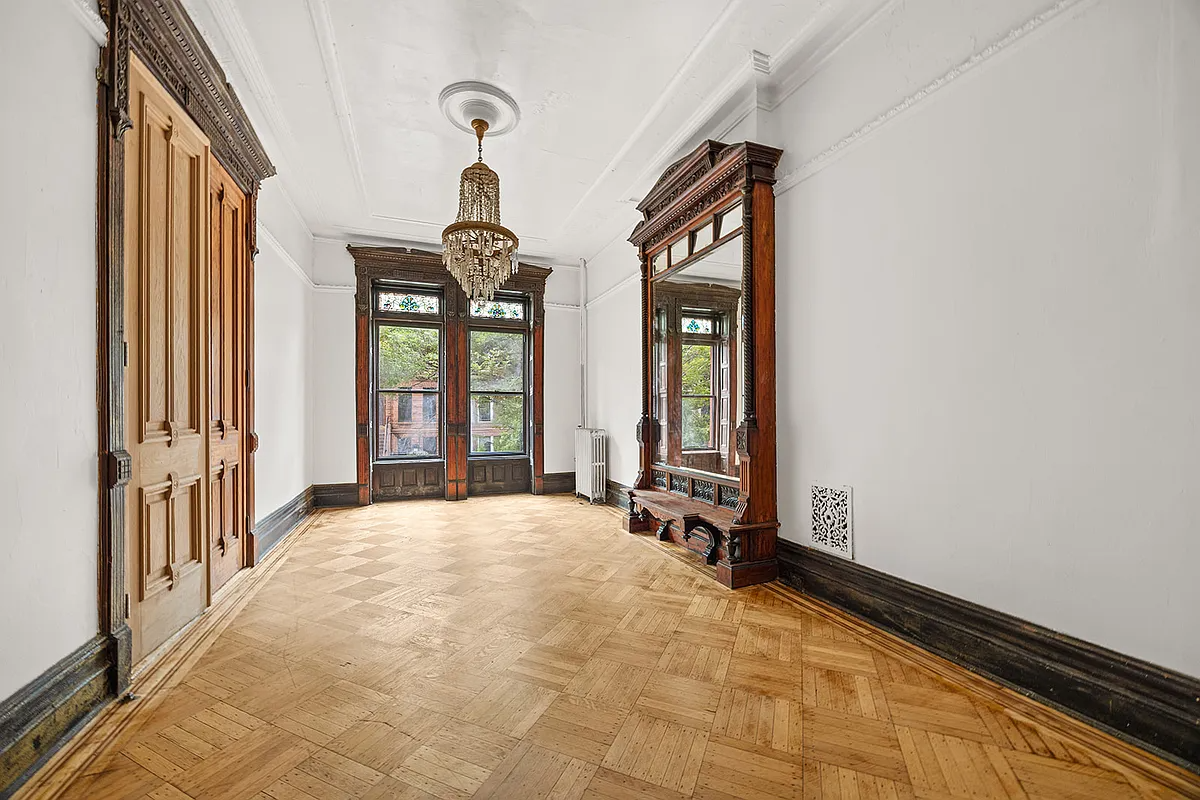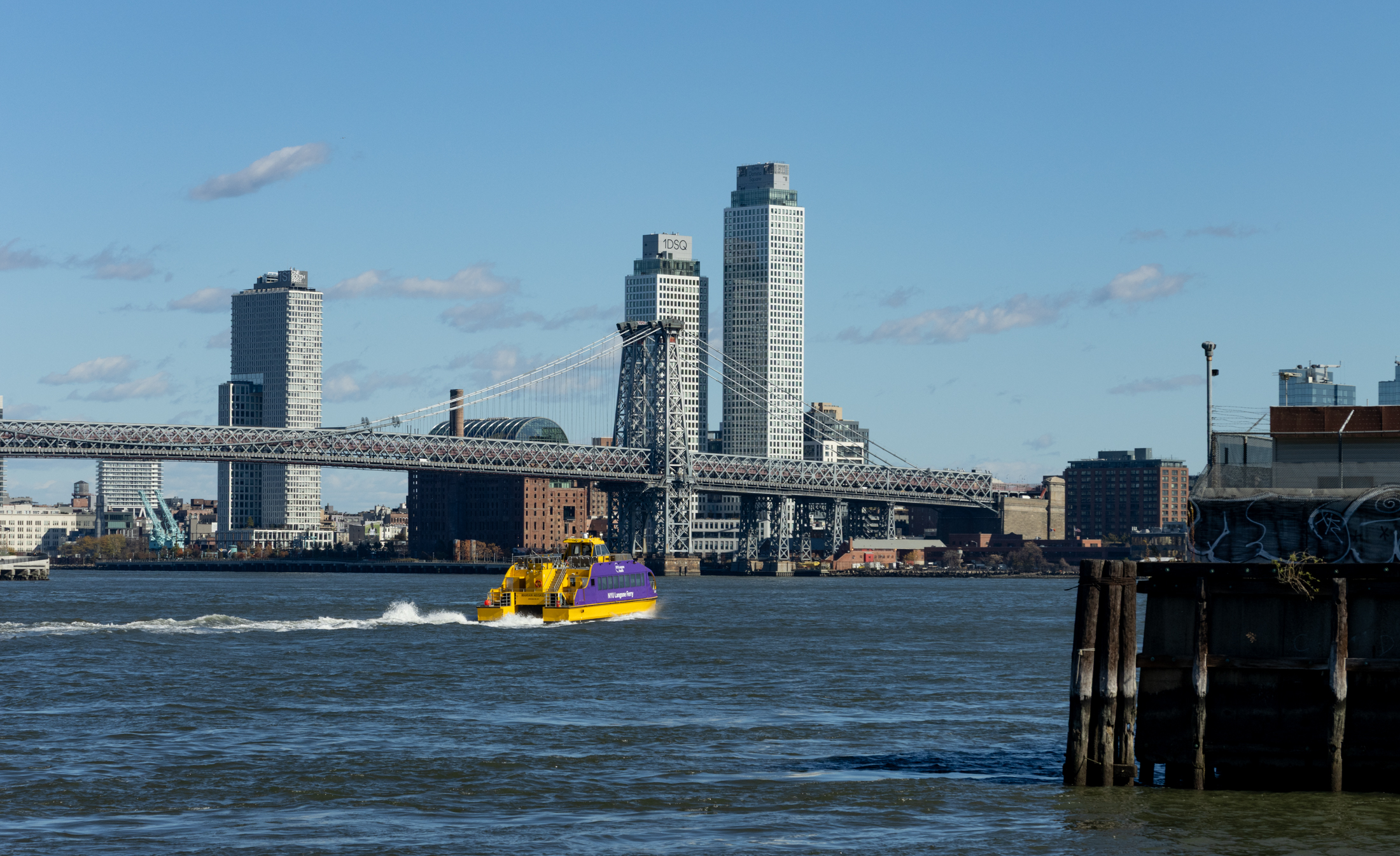Congestion Pricing Defeat a Win for the Boroughs?
The Times is describing the death of congestion pricing behind closed doors in Albany yesterday as something of a victory for Brooklyn and Queens, since the plan “was strongly opposed by a broad array of politicians from Queens, Brooklyn and New York’s suburbs, who viewed the proposed congestion fee as a regressive measure that overwhelmingly…


The Times is describing the death of congestion pricing behind closed doors in Albany yesterday as something of a victory for Brooklyn and Queens, since the plan “was strongly opposed by a broad array of politicians from Queens, Brooklyn and New York’s suburbs, who viewed the proposed congestion fee as a regressive measure that overwhelmingly benefited affluent Manhattanites.” Brooklyn City Councilmembers were clearly divided on the issue: Last week nine voted against the measure and seven voted for it. It remains to be seen now whether the residential parking permits initiative, which was contingent upon congestion pricing legislation passing, is also dead for the foreseeable future. Whether or not the defeat was a win for Brooklyn and the other boroughs, it was obviously a bruising loss for Mayor Mike. The mayor issued a statement that says, in part: “Today is a sad day for New Yorkers and a sad day for New York City. Not only won’t we see the realization of a plan that would have cut traffic, spurred our economy, reduced pollution and improved public health, we will also lose out on nearly $500 million annually for mass transit improvements and $354 million in immediate federal funds…It takes true leadership and courage to embrace new concepts and ideas and to be willing to try something. Unfortunately, both are lacking in the Assembly today. If that wasn’t shameful enough, it takes a special type of cowardice for elected officials to refuse to stand up and vote their conscience on an issue that has been debated, and amended significantly to resolve many outstanding issues, for more than a year.” Most of the dailies have stories about how Bloomberg played a hand in the bill’s defeat by using hardball tactics with legislators. The Times notes that “many opponents said they resented the pressure and threats that they said emanated from Mr. Bloomberg’s side, including hints that the mayor would back primary candidates to run against politicians who opposed congestion pricing.”
$8 Traffic Fee for Manhattan Gets Nowhere [NY Times]
It’s (Apparently) Official: Congestion Pricing Is Dead [Streetsblog]
Bloomberg Unleashes Fury as Silver Halts Congestion Pricing [NY Daily News]
Mayor’s Duck Is Looking A Bit Lame [NY Sun]
Nine Bklyn Councilmembers Vote Against Congest Fee [Brownstoner]
Mayor Rolls Out Resident Parking Permit Proposal [Brownstoner]
Photo by neysapranger.





I don’t find that to be true, 2:55. Where I am working, and where my business takes me, most of the huge SUV’s have NJ plates, or Long Island stickers, and are not livery. Maybe down in Master of the Universe territory, but not the garment district, or SoHo. Also, unless soccor moms who can’t see over the steering wheel are now driving people around, I’d say a good majority of these behemoths are passenger vehicles only.
As to your other points, I disagree, as well. Your examples contain issues that are more complex than just being for or against central air, or being politically correct. You can be pro transit and pro development, and be anti AY, for example.
If you look at most the cars on the roads in Brooklyn it is NOT rich people, sorry. The professional class take the subway to work in Manhattan.
It is by majority the working class in Brooklyn who value owning a car and driving it absolutely everywhere. It’s the American dream. They don’t drive because they have to. They drive because they want to. Big difference.
A good rule of thumb for hard-working middle class folks is that if the NY Times editorial board is for it, you probably want to be agaisnt it. That board has never met a new tax it didn’t like. Based on the editorial piece today they seem really really pissed off that the peasants won another round.
The peasants rejoice!!
Wrong MOntrose – the Hummers and Escalades in midtown are the hired driver of limo service and the passenger in the back seat. But Bloomberg was not interested in cutting down their usage…just the Camry driver from Queens.
Is it just me – or do others get the feeling the the most pro-CP folks are also the most anti-AY and anit-other big development projects that maximize density nearest mass-transit? And they probably scoff at houses that are only 16 feet wide and don’t have central air or Sub-Zero appliances that suck up lots of electricity.? THen they fly off in (very high carbon footprint)airplanes to vacation in Europe and come back and tell us how much better it is done over there.
Sam, I’m tall and a little wider than I need to be, so I hear you, although I was suprised at how roomy a Mini Cooper is. My first trip to Italy was in 1973, and the teenage group I was a part of thought it was the funniest thing in the world to pick up a Fiat and turn it around facing the other way. They couldn’t do that with a Detroit land yacht. Point being that was 35 years ago, and Europeans have been building small for a couple of generations, while we haven’t until lately.
We have the technology to do many amazing things. I find it highly unlikely that we haven’t figured out how to cheaply and efficiently use alternative fuels. The tech is there, big oil doesn’t want it to succeed. Until we break their hold on us, we will be dependent on fossil fuels, and massive pollution will continue.
Little cars are for little people Montrose. You’re not going to get me into one of those Dr. Seuss playcars you see in Rome and Paris. Besides the only people who want little cars in America are New Yorkers, most of whom have never even bought a car, so I don’t think the auto industry sees us as their ideal demographic. However you are absolutely correct that alternative fuels need to be further exploited and used. We need to develop cleaner cars and trucks and I think we are doing so. Let the traffic take care of itself. I for one am happy that the CEO of JP Morgan is stuck in the same traffic jam I am. It’s democratic. The anti-poor driver’s tax is not.
if the goal was truly to cut down on pollution, then Bloomberg would do better to put pressure on the auto industry, and even more on the profit bloated oil industry, to come up with more and better alternative fuel cars, and smaller vehicles. Better yet, alternative fuel trucks and vans, as well. The only ones I’ve seen in Manhattan belong to Whole Foods, and how many can that be compared to the huge number of commercial vehicles in the city? At least many of the MTA buses run on alternative fuels.
Europe, whose gas costs twice what ours does, has switched to smaller, more fuel efficient cars. What do we do? Build Hummers and Escalades the size of Texas, usually occupied only by the driver. As a nation, we are not interested in saving money, fuel, or the environment. Until we are really serious about that, nothing will change.
What exactly is the difference between giving the MTA a hundred million dollars and dumping it all in the river?
-The clean-up costs would be greater if it goes to the MTA
12.33 PM;
You state that a gas (consumption) tax is far, far more regressive than a CP as if it were self-evident. You offer no arguments in defense of this position.
I don’t buy your statement for a moment. If one puts a higher tax on gas, it still provides people with the freedom to make the appropriate choice, given their situation. If one has more modest means, it might mean the purchase of a more efficient (or smaller) car. They might opt to use the subway instead.
Moreover, consumption tends to correlate with income. I don’t think it is the poor who consume gas for pleasure motorboating, or weekend drives to their country home. The great thing about sucha tax,however, is that it makes no distinction: you consume, you pay.
Benson